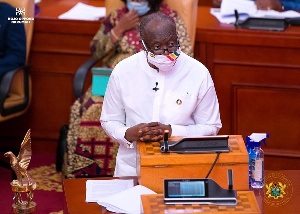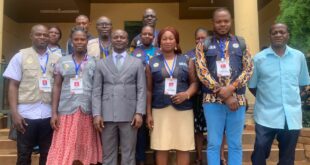Ghana’s capital-raising wheeze is a smart idea flawed by dubious assumptions and numbers. The country is parcelling up royalties from its gold mines into a Jersey-incorporated company called Agyapa.
The government will then sell half of this on the London stock exchange for a proposed $US500 million ($701 million).
Rationally, gold’s record-tipping price should encourage producers to ramp up.
Parlaying minerals into present-day income makes sense: think of it as the sovereign equivalent of equity release. Ghana literally sits on a gold mine: last year it shipped $US6.7 billion worth, according to the Ghana Chamber of Mines, making it the country’s biggest export.
But a combination of coronavirus and falling prices for oil and cocoa – two other big exports – have dented economic growth and left it with a debt/GDP ratio of 70-odd per cent. Half the government’s revenues go on servicing debt.
The government, which has been working on the deal for two years, has been coy about its methodology and assumptions. Certainly, some of the numbers err towards the conservative.
Royalties of 3-5 per cent will come from 16 gold mines, four of which are projects still under development. Ghana, insisting it is not “mortgaging the country’s future revenues”, is assuming 2.9 million ounces and adding on up to 400,000 ounces for a mine that has had an interrupted start.
Civil society groups cry foul. Calculating output from its own analysis of the relevant mines and applying a growth rate of 4 per cent, Accra-based consultancy Imani puts the number at 4.2 million ounces in the near term and 4.9 million over the next two decades.
Rationally, gold’s record-tipping price should encourage producers to ramp up.
Assuming the IPO proceeds as envisaged, it will value Agyapa at $US1 billion, less than half the amount pegged by NGOs and independent economists.
Sure, investors will be taking on sovereign risk – that of a highly indebted country with (depending on the outcome of the December elections) a newly minted government.
But the balance of risk seems to lie with the country. A pity. Emerging markets more than ever need to secure funds without recourse to expensive capital markets or signing up for the onerous conditions that attach to bailouts.
Source: Financial Times
 Home Of Ghana News Ghana News, Entertainment And More
Home Of Ghana News Ghana News, Entertainment And More





